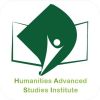The recent seminar, jointly organized by the Aligarh Interfaith Center (AIC) and the Humanities Advanced Studies Institute, New Delhi (HASI), held in the JNMC Auditorium at Aligarh Muslim University (AMU), brought together scholars, religious leaders, and intellectuals from diverse faith backgrounds. This landmark event addressed the theme of “Path and Lifestyle” from the perspectives of various religions, focusing on values, harmony, unity, and the need for dialogue. Esteemed figures from Islam, Christianity, Jainism, Hinduism, and Buddhism shared their insights on the significance of religion in guiding ethical and social values, underscoring the responsibility that religious teachings bestow upon individuals to contribute positively to society.
Keynote Speech by Dr. Haddad Adel
Dr. Haddad Adel, a respected Iranian philosopher and former chairman of the Iranian Parliament, delivered the keynote address, identifying a pressing issue in contemporary society: the decline of traditional family values under the influence of Western ideologies. He explained that this shift disrupts societal cohesion and personal values. Dr. Adel pointed out that the conception of God is central to both Islamic and ancient Indian philosophies, serving as a compass that instills a sense of accountability and stewardship toward nature, society, and the cosmos. He creatively compared lifestyle to literary style, suggesting that just as literary style reflects an author’s thought and expression, lifestyle reflects a person’s values, interactions, and attitudes toward life. He drew from historical examples like Dara Shikoh’s “Majma-ul-Bahrain” (The Confluence of the Two Seas) as a testament to how Islamic and Indian philosophical thoughts once converged to explore universal truths.
Messages from Distinguished Religious Leaders
- Qase Bhai Saheb Jamaluddin, Bohra Community Leader: He emphasized that love fosters cooperation, a fundamental value extending beyond religious boundaries to all humanity. He advocated for a responsible attitude not only towards fellow humans but also toward environmental resources, highlighting the significance of compassion for sustainable living.
- Ayatollah Mehdi Mahdavi Pour, Representative of the Supreme Leader in India: Ayatollah Mahdavi Pour noted that Islam emphasizes the cultivation of moral character across all facets of life. He mentioned Imam Zainul Abidin’s emphasis on fulfilling rights—extending from parents and neighbors to animals. Justice, he said, is central to Islamic teachings and should guide every aspect of human interaction. His hope was that this seminar would serve as a foundation for increased unity and understanding among various faith groups.
- Professor Tariq Mansoor, Former Vice-Chancellor of AMU: Prof. Mansoor, presiding over the inaugural session, highlighted the growing necessity for interfaith dialogue to address modern social challenges. He commended the organizers and observed that platforms for dialogue offer practical solutions to conflicts, underscoring their role in fostering peace and resolution.
- Professor Ali Mohammad Naqvi, Director of AIC: Prof. Naqvi’s welcome address set the tone for the seminar, expressing optimism that the reflections shared by religious leaders would serve as a guiding light for the audience in understanding how religion can promote social harmony and foster peaceful coexistence.
- Father Dr. M.D. Thomas, Christian Leader: Father Thomas advocated for spirituality as a pathway rooted in belief in God. He emphasized the importance of building relationships with people from different faith backgrounds, which, he argued, would help cultivate peace and fraternity within society.
- Shri Vivek Muni, Jain Religious Leader: Drawing on Jain philosophy, Shri Muni stressed the principle of “live and let live” as a guiding lifestyle philosophy. He promoted dialogue as a means to resolve differences and underscored the role of compassion and love as unifying forces.
- Dr. Brijendra Nandan Das, Vice-President of ISKCON: Dr. Das discussed the importance of nourishing the soul alongside the body, emphasizing that teachings from the Gita stress spiritual health. He expressed concern that many today overlook the distinction between the body and the soul, resulting in confusion and a loss of deeper purpose.
Second Session Insights and Reflections on Global Conflicts
The second session, chaired by AMU’s Vice-Chancellor Professor Mohammad Gulrez, delved into contemporary global conflicts. Prof. Gulrez critiqued Samuel P. Huntington’s “Clash of Civilizations” theory, describing it as a misinterpretation that has sown division rather than unity. He pointed to ongoing conflicts such as the Russia-Ukraine war and the Palestine-Israel crisis, using these as examples of how essential dialogue and mutual understanding are in today’s world. Prof. Gulrez stressed the importance of interfaith conversations and emphasized that religious leaders have a pivotal role in fostering global peace by promoting tolerance and understanding.
Insights from Other Distinguished Speakers
- Lama Choosphel Zotpa, Former Chairman of the National Commission for Scheduled Tribes: Lama Zotpa advocated for peace and fraternity among followers of all religions. He highlighted the fundamental Buddhist teaching of helping one another as an essential human value.
- Haji Mustafa from Kuwait: Haji Mustafa noted the value of Eastern traditions and warned against losing cultural heritage to the influence of Westernization and modernity. He emphasized that the preservation of these values is crucial for maintaining societal coherence.
Research Presentations and Forthcoming Publications
Following the seminar, scholars from various universities presented their research papers, expanding on the theme of lifestyle and faith. Over 30 scholars offered their insights on topics surrounding “Path and Lifestyle,” contributing to a rich discourse on the interplay of ethics, religious values, and personal conduct. These papers underscored the ongoing relevance of religious teachings in shaping a conscientious and harmonious society. In recognition of the intellectual depth of these presentations, AIC and HASI have announced plans to compile and publish these works, providing a valuable resource for future researchers and scholars interested in interfaith studies.
The seminar highlighted the role of religion in nurturing peace, empathy, and unity, advocating that these values are crucial in navigating the complexities of modern society. By offering a space for religious and academic voices to converge, the seminar has laid a foundation for continued dialogue, understanding, and cooperation across different faith communities.
